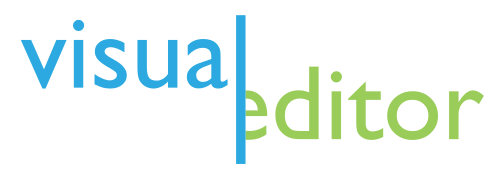
James Forrester of the Wikimedia Foundation made the below announcement about the first stage implementation of a visual editor for the English language Wikipedia. We’re happy to share this announcement with you.
Today we are launching an alpha, opt-in version of the VisualEditor to the English Wikipedia. This will let editors create and modify real articles visually, using a new system where the articles they edit will look the same as when you read them, and their changes show up as they type enter them — like writing a document in a word processor. Please let us know what you think.
Why launch now?
We want our community of existing editors to get an idea of what the VisualEditor will look like in the “real world” and start to give us feedback about how well it integrates with how they edit right now, and their thoughts on what aspects are the priorities in the coming months.
The editor is at an early stage and is still missing significant functions, which we will address in the coming months. Because of this, we are mostly looking for feedback from experienced editors at this point, because the editor is insufficient to really give them a proper experience of editing. We don’t want to promise an easier editing experience to new editors before it is ready.
As we develop improvements, they will be pushed every fortnight to the wikis, allowing you to give us feedback as we go and tell us what next you want us to work on.
How can I try it out?
The VisualEditor is now available to all logged-in accounts on the English Wikipedia as a new preference, switched off by default. If you go to your “Preferences” screen and click into the “Editing” section, it will have as an option labelled “Enable VisualEditor”). Once enabled, for each article you can edit, you will get a second editor tab labelled “VisualEditor” next to the “Edit” tab. If you click this, after a little pause you will enter the VisualEditor. From here, you can play around, edit and save real articles and get an idea of what it will be like when complete.
At this early stage in our development, we recommend that after saving any edits, you check whether they broke anything. All edits made with the VisualEditor will show up in articles’ history tabs with a “VisualEditor” tag next to them, so you can track what is happening.
Things to note
Slow to load – It will take some time for long complex pages to load into the VisualEditor, and particularly big ones may timeout after 60 seconds. This is because pages have to be loaded through Parsoid which is also in its early stages, and is not yet optimised for deployment and is currently uncached. In the future (a) Parsoid itself will be much faster, (b) Parsoid will not depend on as many slow API calls, and (c) it will be cached.
Odd-looking – we currently struggle with making the HTML we produce look like you are used to seeing, so styling and so on may look a little (or even very) odd. This hasn’t been our priority to date, as our focus has been on making sure we don’t disrupt articles with the VisualEditor by altering the wikitext (correct “round-tripping”).
No editing references or templates – Blocks of content that we cannot yet handle are uneditable; this is mostly references and templates like infoboxes. Instead, when you mouse over them, they will be hatched out and a tooltip will inform you that they have to be edited via wikitext for now. You can select these items and delete them entirely, however there is not yet a way to add ones in or edit them currently (this will be a core piece of work post-December).
Incomplete editing – Some elements of “complex” formatting will display and let you edit their contents, but not let users edit their structure or add new entries – such as tables or definition lists. This area of work will also be one of our priorities post-December.
No categories – Articles’ “meta” items will not appear at all – categories, langlinks, magic words etc.; these are preserved (so editing won’t disrupt them), but they not yet editable. Another area for work post-December – our current plan is that they will be edited through a “metadata flyout”, with auto-suggestions and so on.
Poor browser support – Right now, we have only got VisualEditor to work in the most modern versions of Firefox, Chrome and Safari. We will find a way to support (at least) Internet Explorer post-December, but it’s going to be a significant piece of work and we have failed to get it ready for now.
Articles and User pages only – The VisualEditor will only be enabled for the article and user namespaces (so you can make changes in a personal sandbox), and will not work with talk pages, templates, categories, etc.. In time, we will build out the kinds of specialised editing tools needed for non-articles, but our focus has been on articles.
Final point
This is not the final form of the VisualEditor in lots of different ways. We know of a number of bugs, and we expect you to find more. We do not recommend people trying to use the VisualEditor for their regular editing yet. We would love your feedback on what we have done so far – whether it’s a problem you discovered, an aspect that you find confusing, what area you think we should work on next, or anything else, please do let us know.










